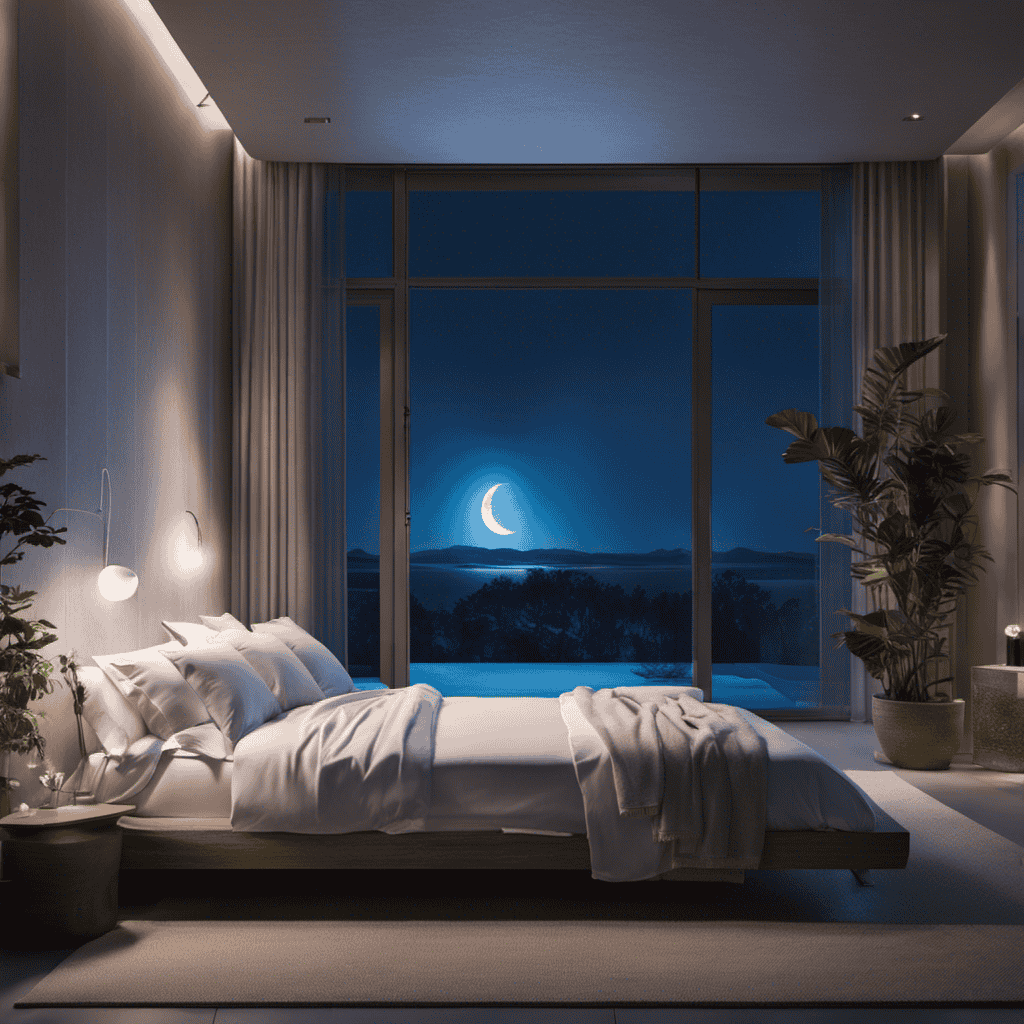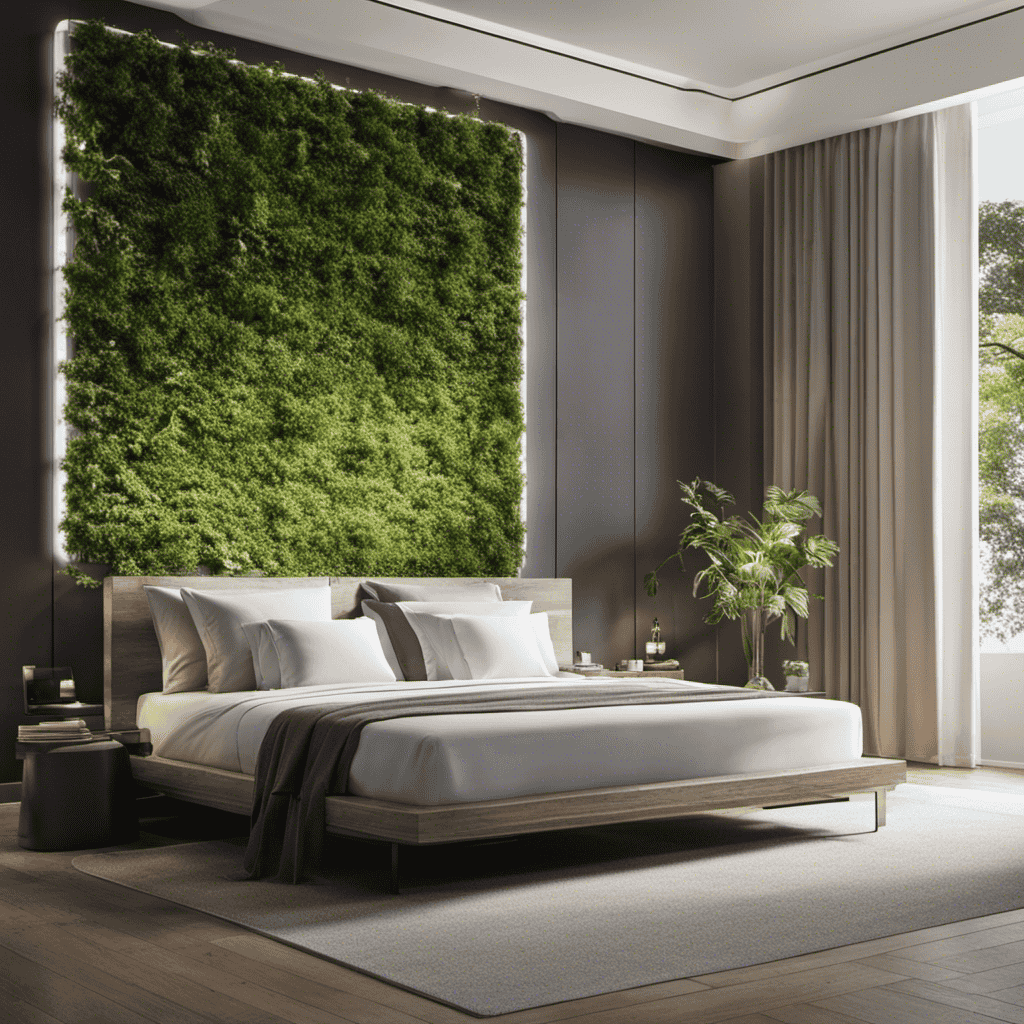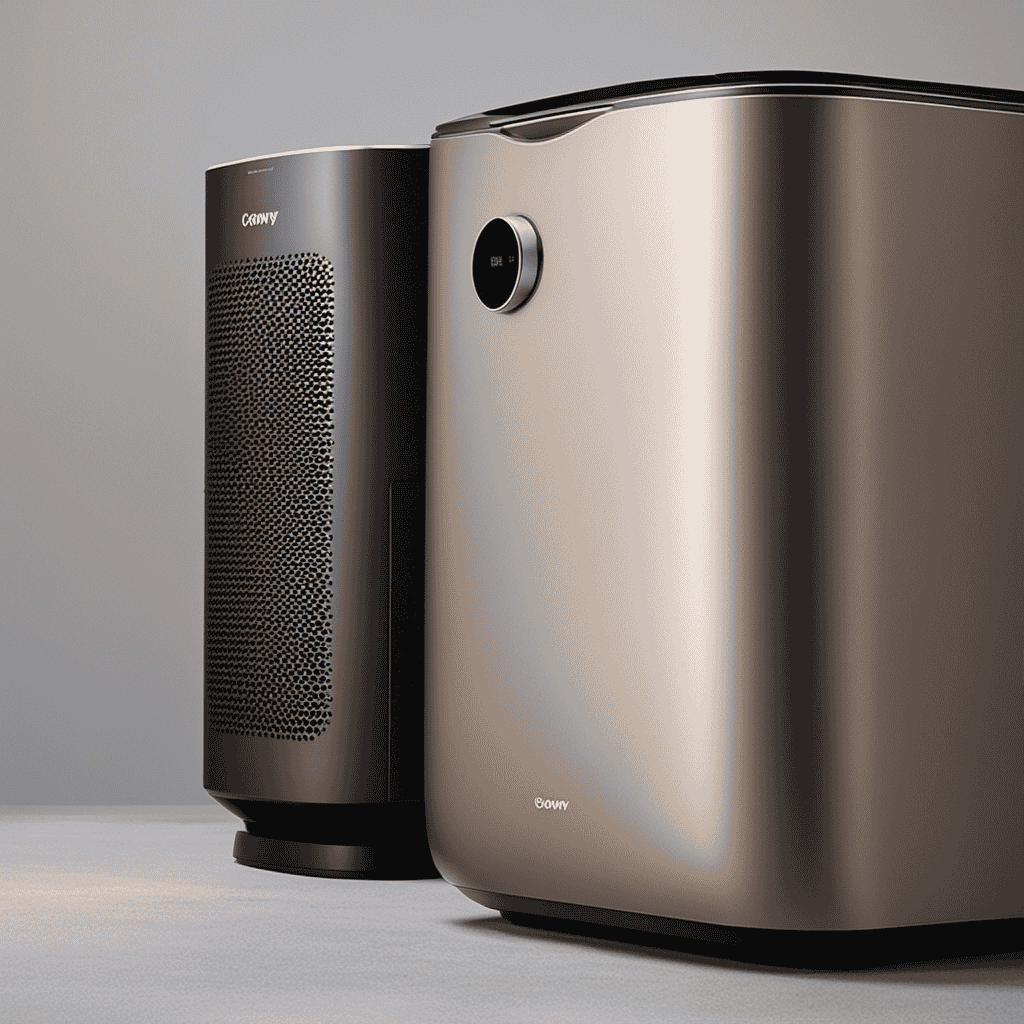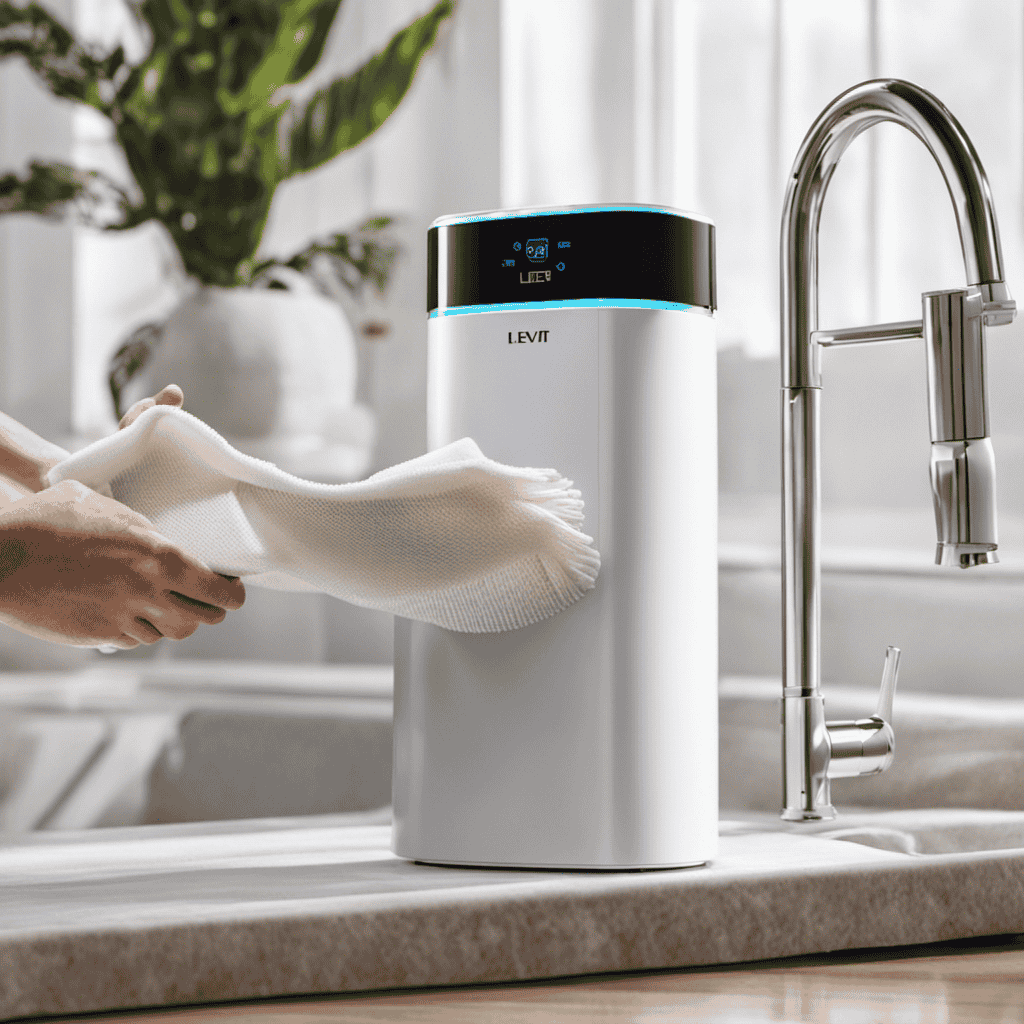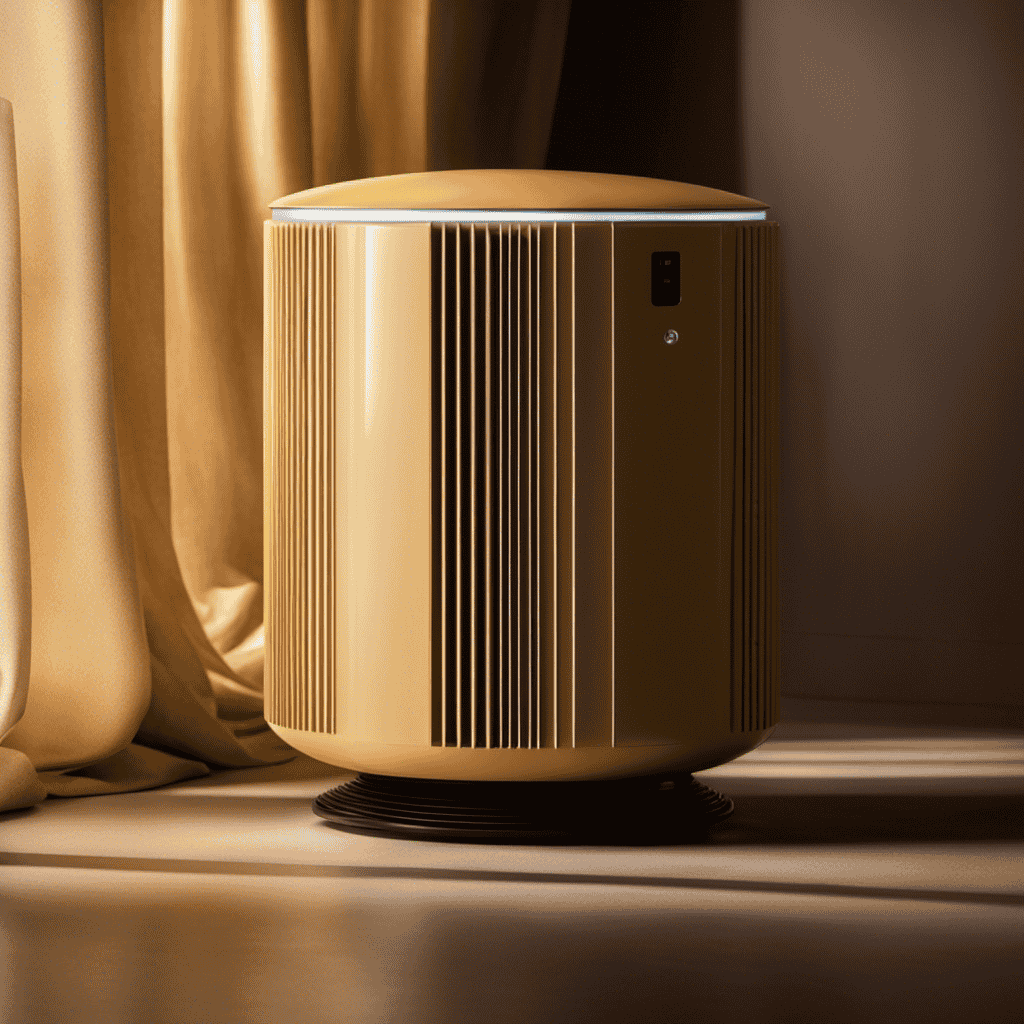I never knew how much of a difference an air purifier could make for my skin until I woke up one morning with dry, irritated patches all over my face. It felt like my skin had lost all its natural moisture overnight.
Curiosity led me to explore the relationship between air quality and skin health, and what I discovered was eye-opening. In this article, I will delve into the common skin issues caused by air purifiers and share tips on protecting your skin while using one.
Together, let’s uncover the truth about what sleeping with an air purifier is doing to our skin.
Key Takeaways
- Air purifiers can reduce airborne particles that clog pores and cause breakouts.
- Using an air purifier may lead to drier air, which can strip the skin of its natural moisture.
- Some air purifiers produce ozone as a byproduct, which can irritate the skin and cause redness and itching.
- Air pollution can cause inflammation, breakouts, and premature aging when it comes into contact with the skin.
The Impact of Air Purifiers on Skin Health
If you’re using an air purifier while you sleep, it’s important to consider how it might be affecting the health of your skin.
Air purifiers are designed to remove pollutants and allergens from the air, but their effectiveness in improving skin health is still up for debate. While they can help reduce the amount of airborne particles that may clog pores and cause breakouts, it’s crucial to make certain adjustments to your skin care routine.
The use of an air purifier may lead to drier air, which can strip the skin of its natural moisture. To counteract this, consider using a humidifier in conjunction with your air purifier to maintain a balanced level of moisture in the air.
Additionally, be sure to moisturize your skin regularly and stay hydrated to keep your skin healthy and hydrated.
Common Skin Issues Caused by Air Purifiers
You may experience common skin issues when using an air purifier. While these devices are essential for improving indoor air quality, they can have an impact on your skin.
Here are three common skin issues that may arise when using an air purifier:
-
Dryness: Air purifiers remove moisture from the air, leading to dry skin. It’s important to maintain a good skincare routine to combat this issue.
-
Irritation: Some air purifiers produce ozone as a byproduct, which can irritate the skin and cause redness and itching. It’s crucial to choose an air purifier with low ozone emissions.
-
Sensitivity: Air purifiers can remove allergens and pollutants from the air, but they can also strip away natural oils from your skin, making it more sensitive and prone to irritation.
Understanding the relationship between air quality and skin is crucial for maintaining a healthy complexion.
Understanding the Relationship Between Air Quality and Skin
Maintaining a healthy complexion is crucial, and understanding how air quality affects your skin is important. Air pollution can have detrimental effects on the skin, leading to various skin issues.
When pollutants in the air come into contact with the skin, they can penetrate the pores and cause inflammation, breakouts, and premature aging. To combat these effects, it is necessary to make adjustments to your skincare routine.
Firstly, cleansing the skin thoroughly is essential to remove any pollutants that may have accumulated throughout the day.
Secondly, using products that contain antioxidants can help neutralize the free radicals caused by air pollution.
Additionally, incorporating a moisturizer with a barrier function can protect the skin from harmful pollutants.
Lastly, wearing sunscreen daily is crucial as it acts as a shield against UV rays and environmental pollutants.
Tips for Protecting Your Skin While Using an Air Purifier
To effectively protect your skin while using an air purifier, it is important to ensure that the device is regularly cleaned and maintained. Here are three important tips to keep in mind for maintaining your air purifier and choosing the right one for your needs:
-
Regularly clean the filters: The filters in your air purifier are responsible for trapping dust, allergens, and other pollutants. It is crucial to clean or replace them as recommended by the manufacturer to ensure optimal performance and prevent the buildup of harmful particles.
-
Consider the size and coverage: When choosing an air purifier, make sure to select one that is appropriate for the size of the room you want to purify. Different models have different coverage areas, so it is important to match the purifier’s capacity with your specific needs.
-
Check for additional features: Some air purifiers come with additional features like humidifiers, ionizers, or UV lights. These features can provide added benefits like moisturizing the air or killing bacteria and viruses. Consider your specific requirements and choose a purifier with the features that align with your needs.
Natural Remedies for Soothing Air Purifier-Related Skin Irritation
If you’re experiencing skin irritation from using an air purifier, there are natural remedies that can help soothe the discomfort.
Air purifiers can sometimes cause dryness, itchiness, or redness, especially for those with sensitive skin. To alleviate these symptoms, there are several natural solutions that can provide relief.
First, using a humidifier can add moisture to the air, preventing your skin from becoming dry. Additionally, applying aloe vera gel or coconut oil to the affected areas can help moisturize and soothe the skin. Another option is to take cool showers or use cold compresses to reduce inflammation. Finally, drinking plenty of water can help hydrate your skin from within.
Frequently Asked Questions
Can an Air Purifier Improve the Overall Health of My Skin?
Using an air purifier can potentially improve the overall health of my skin by reducing pollutants in the air that can contribute to wrinkles and dryness.
Are There Any Long-Term Effects on the Skin From Using an Air Purifier?
Long-term benefits and potential risks of using an air purifier on skin are important. It’s crucial to understand how it affects our skin health.
Can Air Purifiers Worsen Existing Skin Conditions, Such as Acne or Eczema?
Air purifiers can potentially worsen existing skin conditions like acne or eczema. They may contribute to dryness and skin irritation due to their ability to remove moisture from the air.
Do Air Purifiers Remove All Harmful Particles From the Air, Including Those That Can Affect the Skin?
Air purifiers effectively remove harmful particles from the air, providing numerous benefits. They can improve air quality, reducing the likelihood of skin issues caused by pollutants. However, the specific effects of sleeping with an air purifier on the skin may vary.
Are There Any Specific Types of Air Purifiers That Are More Skin-Friendly Than Others?
There are air purifiers that are more skin-friendly than others. When choosing the right air purifier, consider its benefits for your skin. Some purifiers can help remove irritants and pollutants that can affect your skin while you sleep.
Conclusion
In conclusion, sleeping with an air purifier can have a profound impact on our skin health.
Just like a knight protecting a castle, the air purifier shields us from harmful pollutants, ensuring our skin remains clean and clear.
However, it’s important to be aware of potential skin issues that may arise, such as dryness or irritation.
By understanding the relationship between air quality and skin, and following simple tips like moisturizing and using natural remedies, we can enjoy the benefits of purified air without sacrificing our skin’s well-being.
